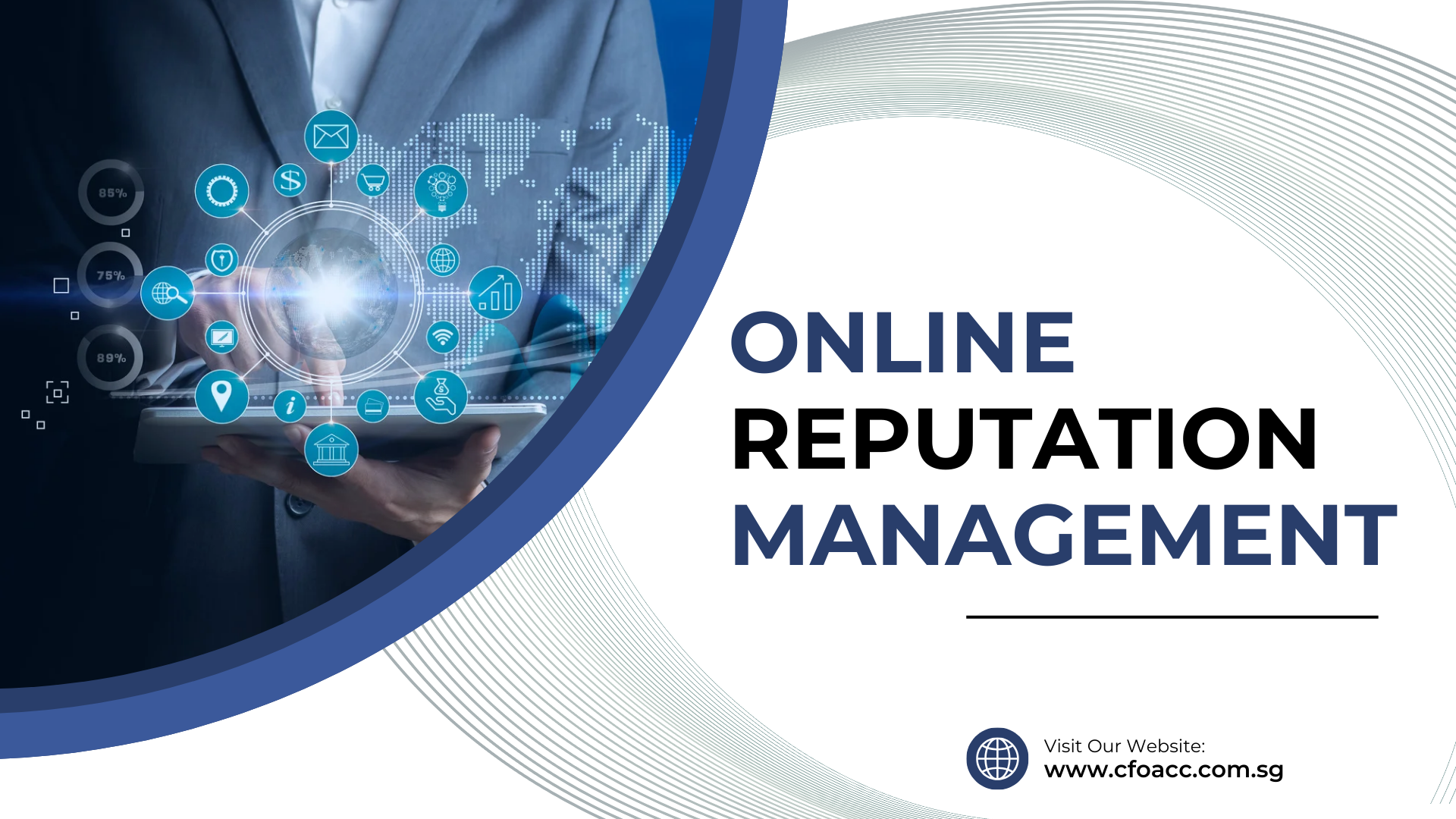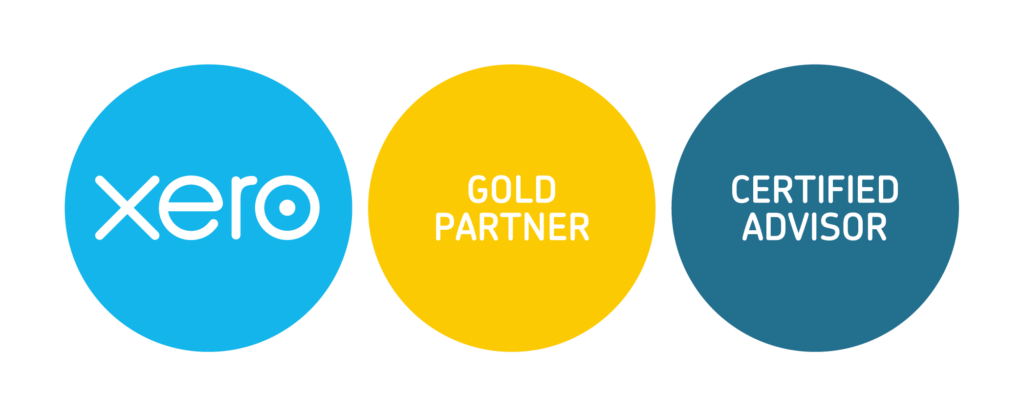CFO GROUP INTEGRATED SERVICES
Unlock The Secret: How Online Reputation Management Works
CMO Media Lab Pte Ltd • August 12, 2024
In the digital age, a brand’s online presence can make or break its success. Online reputation management software (ORM) has become the invisible force that shapes public perception and dictates market triumph by managing and improving the brand’s online reputation across various platforms. Establishing an online reputation management strategy is crucial to build, maintain, and repair the brand's reputation effectively.
As we become ever more reliant on digital information, how a brand is perceived online is as critical as the quality of its products or services.
Know The Importance Of Online Reputation Management
Understanding the importance of online reputation management (ORM) is critical for both organizations and individuals in today’s digital landscape. ORM encompasses the strategies and processes used to monitor, influence, and maintain a positive reputation online across various digital platforms, including social media and search engines.
The impact of online brand reputation management cannot be overstated. It directly influences trust and credibility, which are key factors in customer acquisition and retention. Positive online visibility, driven by user-generated content such as positive reviews and media posts that reflect well on a brand, can increase customer engagement.
Conversely, negative reviews and feedback can deter potential customers and damage the public perception of a brand’s reputation. It is reported that 90% of consumers read online reviews before visiting a business, highlighting the weight that online opinions hold.
A strong ORM strategy includes:
- Actively monitoring online presence for potential issues.
- Responding to both positive and negative feedback in a professional manner.
- Creating and disseminating positive content, such as blog posts and news articles, to improve search engine optimization (SEO).
- Engaging with the target audience through social media profiles and platforms.
Neglecting ORM can result in a bad experience for potential customers before interacting with a business. Thus, proactive ORM is essential for maintaining a compelling and trustworthy brand online reputation.
Different Media Channels For Online Reputation Management

ORM involves various strategies across different media channels to support and protect an organization's digital portrayal. These channels include:
- Paid Media: Google ads, social media ads, PPC ads, sponsored posts, and influencer partnerships.
- Earned Media: Press coverage, articles on external websites, public discussions on forums, third-party listings, and reviews.
- Shared Media: Content related to a brand that appears on social media accounts and platforms, originating either from the business itself or from its audience and customers.
- Owned Media: Website content, blogs, and organic social media posts.
Each media type serves as a conduit for managing online reputations, offering varying degrees of control, reach, and engagement with potential customers and the broader online community.
Bad Reputation Management Examples: Lessons Learned

In April 2017, United Airlines faced a severe reputation crisis when a video showed a passenger being forcibly dragged off an overbooked flight. The incident caused United’s stock to drop by almost 3%, losing nearly $1 billion in market value at one point. Click here to read more about this incident.
The video, taken by other passengers, quickly went viral, leading to widespread outrage. The passenger was removed from United Flight 3411 at Chicago O’Hare International Airport by security officers, and the footage showed him being dragged down the aisle, bloodied and resisting.
United’s CEO issued a statement apologizing for the incident, but it was widely criticized and did not calm the public’s anger. The backlash extended beyond the U.S., with the incident trending on China’s Weibo, garnering over 100 million views. This was particularly concerning as China is a key market for United.
United’s CEO issued a statement apologizing for the incident, but it was widely criticized and did not calm the public’s anger. The backlash extended beyond the U.S., with the incident trending on China’s Weibo, garnering over 100 million views. This was particularly concerning as China is a key market for United.
Additionally, using an online reputation management tool could have helped United monitor and respond to the situation more effectively by tracking sentiment across various platforms and integrating data from different sources.
Sales Impact Analysis: What Every Business Should Know

Today, Shoppers are more informed than ever, with a significant majority taking the time to conduct research before making a purchase.
According to statistics from Think with Google, 53% of shoppers always do research before buying to ensure they make the best possible choice. This research often includes reading product reviews, comparing prices, and exploring various brands to gather all the necessary information for an informed decision. The availability of detailed product information and customer reviews online has empowered consumers to feel confident in their purchasing decisions, knowing they have chosen the best option available.
This trend highlights the importance for businesses to maintain a positive online presence and provide clear, accurate information about their products. As shoppers increasingly rely on online research, ensuring that potential customers find positive reviews and detailed product information can significantly influence their purchase decisions. Brands that invest in building and managing their online reputation are better positioned to attract and retain informed consumers who prioritize making well-researched choices.

Customer Feedback
Customer feedback is crucial for effective Online Reputation Management (ORM) as it provides valuable insights into customer satisfaction and areas that require improvement. By actively seeking and responding to customer feedback, businesses can enhance customer loyalty and improve the overall customer experience.
Benefits of Customer Feedback:
- Insight into Customer Satisfaction: Customer feedback helps businesses understand how satisfied customers are with their products or services. This feedback can highlight what customers love and what needs improvement, enabling companies to make data-driven decisions to enhance their offerings.
- Improvement of Products and Services: Feedback from customers provides direct insights into the effectiveness and quality of products or services. This information is invaluable for making necessary adjustments and improvements, ensuring that the business meets customer expectations.
- Customer Loyalty and Retention: Actively engaging with customers by addressing their feedback fosters a sense of loyalty and trust. When customers see that their opinions matter and lead to tangible changes, they are more likely to remain loyal to the brand and continue doing business with it.
- Enhanced Customer Experience: Responding promptly and effectively to customer feedback can significantly enhance the customer experience. By addressing concerns and resolving issues, businesses show that they value their customers, which can lead to more positive reviews and recommendations.
- Encouragement of Positive Reviews: Encouraging customers to leave reviews helps build a positive online reputation. Positive reviews not only attract new customers but also improve search engine rankings, making the business more visible online. It's essential to guide customers on how and where to leave reviews, making the process as easy as possible.
Crafting an Effective Online Reputation Management Strategy

Crafting an effective online reputation management strategy involves systematically monitoring and influencing how a brand is perceived online. This includes conducting audits, tracking brand mentions, managing reviews, creating positive content, and handling crisis management to maintain and enhance a brand’s online presence.
1. Conducting Audits of Online Reputation
Conducting audits is essential for effective ORM. Key steps include:
- Analyze Online Presence: Review websites, social media, and search engine results.
- Identify Content: Find positive content and negative reviews or comments.
- Evaluate Content Representation: Check for overrepresentation of external news.
- Promote Positive Reviews: Develop strategies to enhance positive feedback and reduce negative impacts.
A systematic audit helps businesses maintain a healthy digital image.
2. Establishing Guidelines for Communication and Tone of Voice
Proper communication guidelines ensure a consistent brand's tone across channels. These guides help employees manage customer commentary effectively, whether responding to positive feedback or mitigating negative reviews. Key aspects include:
- Consistency: Ensure a uniform brand's tone across platforms.
- Prioritization: Direct team members on task handling.
- Customer Interaction: Guide responses to reviews to maintain positive brand sentiment.
- Urgency: Define what requires immediate attention.
- Brand Voice Alignment: Align all content with the company’s tone to present a coherent and responsive brand image.
These guidelines help present a coherent and responsive brand image, enhancing brand sentiment and maintaining the desired brand's tone.
3. Monitoring Brand Mentions
Effective ORM involves monitoring brand mentions using advanced tools like Google Alerts and Brand24. These tools provide timely updates on brand mentions across news and social media.
Additionally, tools like Meltwater and Sprout Social offer insights into public sentiment and trending topics, helping brands engage with user-generated content promptly and mitigate negative impacts.
4. Crisis Management Strategy
In a crisis, an effective ORM strategy is crucial. Key components include:
- Predefined Plans: Quick, organized responses to potential issues.
- Transparency and Honesty: Build trust during crises.
- Proactive Engagement: Regular monitoring and interactions.
- Strategic Communication: Consistent messaging in line with brand voice.
Swift action reduces fallout and aids in rebuilding a positive public perception.
5. Encouraging Customer Reviews
Customer reviews strengthen online presence. Strategies include:
- Solicit Feedback: Use surveys and interactive buttons.
- Guide on Leaving Reviews: Provide clear instructions and links.
- Respond to Feedback: Engage with all reviews.
- Offer Incentives: Discounts or specials for reviews.
6. Managing Negative Online Reviews
Managing negative reviews is crucial. Respond promptly and professionally.
How to Respond to Negative Reviews:
- Offer sincere apologies.
- Provide solutions.
- Take conversations offline if needed.
How to Push Negative Reviews Down in Search Rankings:
- Create positive content, such as blog posts, news articles, and customer testimonials.
7. Maintain Consistent Branding
Maintaining consistent branding across all digital platforms is crucial for building and reinforcing brand identity.
Key Elements of Consistent Branding
Logos: Ensure your logo is uniformly used across all platforms for immediate brand recognition by appropriately scaling and positioning it prominently.
Color Schemes: Stick to a specific color palette that represents your brand, as consistent use of colors across your digital presence creates a cohesive brand image.
Messaging: Develop a consistent brand voice that reflects your company's values and tone across all content, ensuring it resonates with your target audience.
8. Create Content for Branded Keywords
Creating content for branded keywords is a strategic approach to improve your search engine rankings and enhance online visibility. By identifying and integrating these keywords into your content, you make it easier for search engines to recognize and prioritize your brand in search results.
Steps to Create Content for Branded Keywords
- Identify Branded Keywords:
Begin by listing your brand's name, product names, and unique selling propositions.
Use tools like Google Keyword Planner or Ahrefs to find variations and related terms that potential customers might use. - Integrate Keywords Naturally:
Ensure that your branded keywords are incorporated seamlessly into your content. This includes titles, headers, and within the body text.
Avoid keyword stuffing, which can negatively impact readability and SEO.
9. Choose Influencers Wisely
Influencers impact online reputation significantly. Choose those whose values align with your brand and who genuinely connect with their audience.
How to Start an Influencer Marketing Campaign:
- Identify relevant influencers.
- Reach out with collaboration proposals.
- Create authentic and engaging content together.
Online Reputation Management Services
Online Reputation Management (ORM) services encompass a range of strategies and tools designed to enhance and protect a brand’s online image. Using an online reputation management tool is crucial for monitoring and gathering data from various platforms such as social media, search results, news articles, and review sites. Here’s a more detailed explanation of the core ORM services:
Monitoring Brand Mentions

ORM services use advanced tools to track brand mentions and monitor brand mentions across the Internet. These tools continuously scan the web, including social media, news articles, blogs, and forums, identifying any references to the brand.
By tracking brand mentions, businesses can quickly address potential issues before they escalate, mitigating negative impacts and leveraging positive feedback to enhance brand image.
Tools like Google Alerts and Brand24 automate this process, providing timely updates and insights into public sentiment and trending topics. Continuous monitoring and quick responses are essential for maintaining and improving a brand's reputation in the digital landscape.
Managing Reviews

Managing customer reviews is a crucial aspect of ORM. This involves responding to both positive and negative reviews professionally and promptly. Addressing negative reviews with solutions shows potential customers that you value feedback and are committed to improving.
Creating Positive Content

ORM services often create and promote positive content about your brand. This includes blog posts, news articles, and social media updates highlighting your brand's strengths, achievements, and positive customer experiences. The goal is to enhance your brand's positive image online and push down any negative content in search results.
Handling Crisis Management

In case of a crisis, ORM services provide strategies to mitigate damage to your brand’s reputation. This involves swift, transparent communication and actions to rectify the situation, which helps regain public trust and minimize long-term impacts.
Partnering with a reputable ORM service ensures these activities are managed professionally, helping maintain a positive online presence and customer perception.
Online Reputation Management Related to SEO
ORM and SEO are interlinked, as both aim to improve a brand’s online visibility and credibility. Here’s how they are connected and how integrating them can benefit your business:
Improving Online Visibility
SEO techniques improve your website's ranking on search engines, making it easier for potential customers to find your positive content. High-quality, keyword-rich content, backlinks, and a well-structured website contribute to better search engine rankings.
Enhancing Credibility
Positive online content and reviews play a significant role in SEO. Search engines favor well-reviewed and frequently updated websites. Thus, positive reviews and fresh content boost your site's authority and credibility.
Driving Traffic
Integrating ORM with
SEO strategies drives more organic traffic to your website. When your brand is perceived positively and your content ranks high on search engines, more potential customers are likely to visit your site and engage with your content.
Controlling the Narrative
SEO techniques help control what information appears in search results. By optimizing content related to your brand, you can ensure that positive and relevant information appears at the top of search results, effectively managing your online reputation.
Combining ORM and SEO strategies provides a comprehensive approach to managing your online presence, ensuring your brand is visible and perceived positively by potential customers.
Elevate Your Brand Reputation With SEO
Enhance your brand's visibility and credibility by leveraging effective SEO strategies. By optimizing your online content, you ensure that your brand appears prominently in search results, attracting more potential customers. Don't wait—elevate your brand reputation with targeted SEO efforts today!










